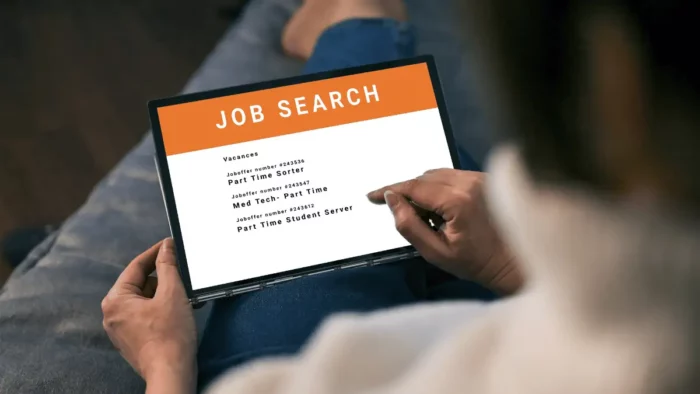There are many people who dream of publishing their own book, but publishing a book can be difficult.
There is no one-size-fits-all way to publish your work, but here are some things you should know before making the final decision on how to make your novel public. A traditional publisher might offer more benefits than self-publishing, or you might have better luck self-publishing if it’s just for family and friends. If you’re still not sure which publishing path is right for you, there are plenty of resources available that will help guide the process. Remember: Be patient with yourself! You’ll find out exactly what works best for you in time!
Consider the Cost
One of the first things you’ll need to think about when publishing a book is the cost. Publishing a book can be expensive, so it’s important to factor that into your decision-making process. If you’re looking to self-publish, you’ll need to pay for things like cover design, editing, and printing. If you’re publishing with a traditional publisher, they will likely cover some of those costs, but you may still be responsible for things like marketing and travel expenses.
There are many factors that go into determining the price of a book. Have you considered how much does book editing cost? Will you have many large pictures? And the binding material? What about the format? Many of these questions require carefully planned answers, as they may determine if a book is a success or not, no matter what is written inside.
Write a Book Proposal
If you’re looking to publish your book with a traditional publisher, you’ll need to write a book proposal. This document will outline your idea for the book, including the plot, target audience, and marketing strategy. The proposal will also include sample chapters and bios of you and any co-authors.
The publishing process can take a long time, so it’s important to start working on your proposal as soon as possible.
Edit and Proofread Your Book
Before publishing your book, you’ll need to edit and proofread it. This is especially important if you’re self-publishing, as there won’t be anyone else to do it for you. Make sure to enlist the help of some friends or family members who can give you honest feedback.
You’ll also want to have a professional editor look at your book. This can be expensive, but it’s worth it if you want your book to be as successful as possible.
Choose the Right Publishing Method
There are two main ways to publish a book:
Self-Publishing
Self-publishing is publishing a book with your own company, instead of publishing with a publishing company. It’s important to keep in mind that self-publishing doesn’t mean you won’t need to find an audience; in fact, it means you’ll have to market your book yourself. There are lots of great things about self-publishing including the ability to make all of the decisions about how your books will look and feel (like do I want a matte cover or glossy?) but it also doesn’t come without its challenges – like figuring out how to get people interested in reading your work.
Marketing is therefore vital for any publishing venture, especially self-publishing.

Traditional Publishing
If you want to write a book but don’t want the headache of publishing it yourself, consider approaching an agent. They will help get your work in front of publishing companies who are eager to publish your type of work. Of course, not all publishing companies accept submissions directly from authors – many publishing houses only want material that has been sought out by agents, while others are more open to unsolicited submissions.
As publishing companies are in the business of publishing books, they will likely be able to help with some (but not all) marketing efforts.
Traditional publishing is a little like playing the lottery; you upload your manuscript and hope that it’s good enough to get picked up by someone who works for one of these publishing houses. It’s also important to keep in mind that publishing houses can take years – even decades – before publishing your book. There are lots of reasons why publishing houses make this decision, but a big one is a lack of marketability.
Be prepared for a long wait time before hearing anything about the status of your work!
Ready for Some Criticism?
No publishing journey is without its bumps in the road and, as an author, you need to be prepared for some criticism. Criticism can come from anyone – agents, editors, publishing houses, and even your friends and family – and it’s important to remember that it’s not always personal.
Keep in mind that publishing is a business and publishing houses are looking to make money. If your book doesn’t have a big enough market or if it doesn’t fit into a genre that’s popular at the moment, you may find yourself struggling to get your work published. Remember: don’t take criticism personally and use it to further improve your work.
Marketing and Branding
Marketing and branding are two of the most important aspects of publishing a book. If you’re publishing with a traditional publishing house, they will likely help with some (but not all) of the marketing efforts. However, it’s important for you to come up with a marketing plan that works for you and your book.
This can include anything from social media campaigns to booking speaking engagements. It’s also important to create a brand for yourself and your work – this includes things like your website, social media platforms, and author photo.
You’ve probably heard publishing a book is difficult, but it doesn’t have to be if you know what you are doing. Whether you want to self-publish or publish with a traditional publisher, publishing your own work can give back the power of storytelling and create new opportunities for success as an author. There are many things that go into publishing a book from writing content to editing drafts before submitting them to publishers or uploading them online where they will become available worldwide in minutes. While it may take some time for a larger audience to form – remember that it can’t happen sooner than you publish.





